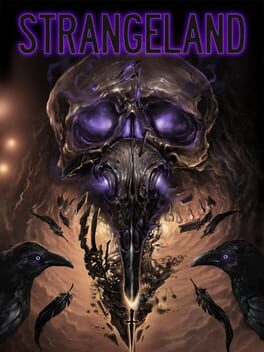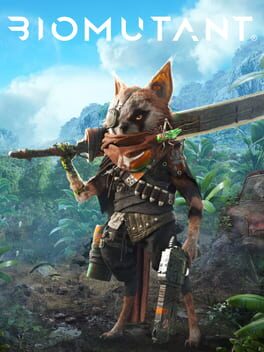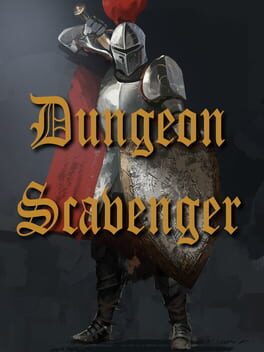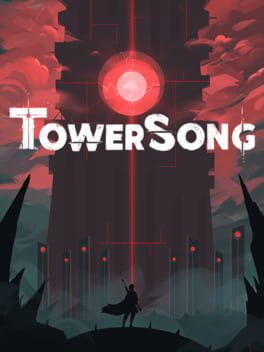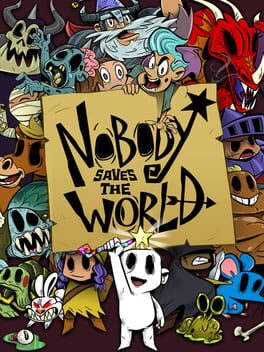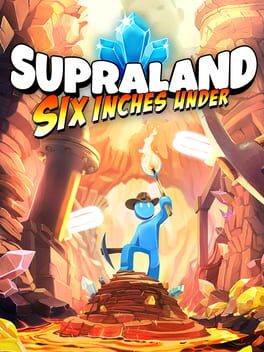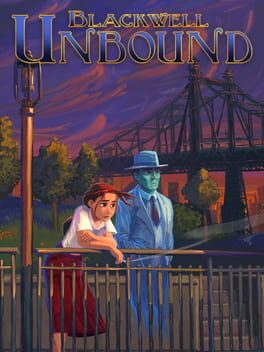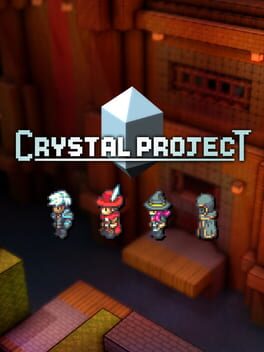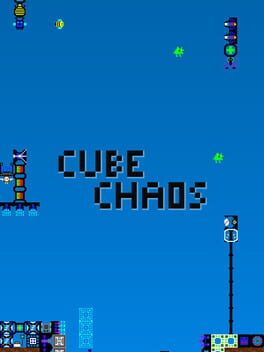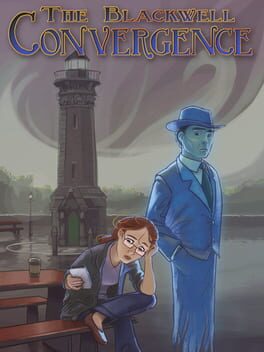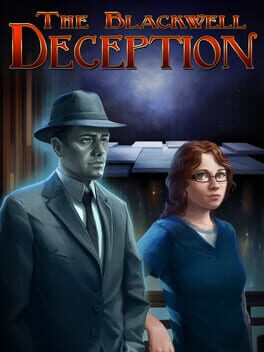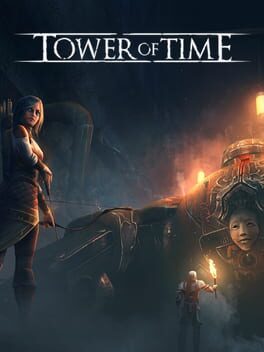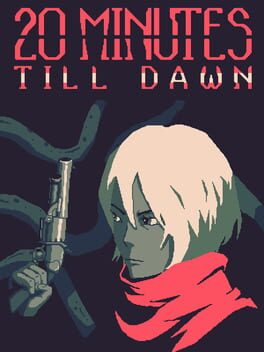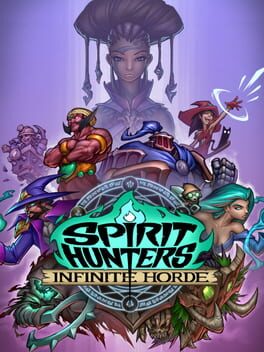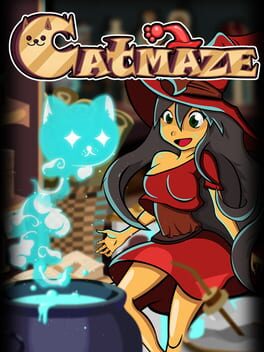jademonkey
2021
This is absolute poetry. Beautifully written and powerfully atmospheric. I could feel just how much grief went into the creation of this deeply-personal game. I can't imagine many would make it through without feeling a strong resonance with at least a scene or two.
I love how unflinchingly bizarre the world of Strangeland is. Many scenes reminded me in the best way possible of the less-gratuitous (in terms of shock-value, at the least) David Firth animations, albeit far more heady; particularly the cicada and teratoma interactions. Every corner of Strangeland is dripping with Giger and Poe and various mythological and biblical allusions. These references thankfully serve to strengthen the unique narrative of Strangeland -- it never feels like a hollow vessel for previous works. In fact, there's a great comment or two in the game about leaning heavily on quotation.
The puzzles and interactive gameplay elements serve their purpose well in creating a connection to the narrative. I never felt too stuck or frustrated, and a simple call to the operator could point me in the right direction if I'd overlooked a cue.
I'm not particularly keen on replaying this one any time too soon, however. It was just a lot to take in! I finished Primordia earlier this week, and will almost certainly return to it sooner than this, despite the excellent evolution in design. All of that being said, I'm very happy to have had the experience and give Strangeland my highest recommendation.
I love how unflinchingly bizarre the world of Strangeland is. Many scenes reminded me in the best way possible of the less-gratuitous (in terms of shock-value, at the least) David Firth animations, albeit far more heady; particularly the cicada and teratoma interactions. Every corner of Strangeland is dripping with Giger and Poe and various mythological and biblical allusions. These references thankfully serve to strengthen the unique narrative of Strangeland -- it never feels like a hollow vessel for previous works. In fact, there's a great comment or two in the game about leaning heavily on quotation.
The puzzles and interactive gameplay elements serve their purpose well in creating a connection to the narrative. I never felt too stuck or frustrated, and a simple call to the operator could point me in the right direction if I'd overlooked a cue.
I'm not particularly keen on replaying this one any time too soon, however. It was just a lot to take in! I finished Primordia earlier this week, and will almost certainly return to it sooner than this, despite the excellent evolution in design. All of that being said, I'm very happy to have had the experience and give Strangeland my highest recommendation.
2021
There are a lot of game design decisions in Biomutant that left me scratching my head. Character progression was off, with too many upgrades for powerful playstyles and not enough for weaker ones. Loot progression was mishandled -- I only ended up finding 2-3 upgrades on the weapon type I liked in the 25 hours I played. Assets were blatantly and distractingly copied and pasted across zones in many occasions. The combat could be clunky at times, and the balance was just off between melee and ranged weapons. The story line was also very minimal.
Despite all of that, I had a great time with Biomutant. The environments were gorgeous, and the world was fun to explore. The character and creature designs were unique and endearing. Despite being clunky at times, the combat was overall very fun, allowing you to combo gun and melee and pepper in psionic and mutagenic abilities. The storyline and characters were charming. The various mounts and vehicles were particularly enjoyable ways to traverse the landscapes.
I think Biomutant shares a similar fate to the original Fable -- it promised a world of innovation, but only delivered a charming action RPG with a few gimmicks. I'm fine with that. I wish the systems were a bit more fleshed out and impactful, but in the end, I enjoyed myself and the game put a smile on my face.
I'm giving Biomutant a 3.5/5. Most of the individual components of Biomutant were 2/5 or maybe 3/5, but, for me, it just came together to be an all around good time despite its shortcomings. A game only needs to do a couple of things really well, as long as its mediocre aspects don't detract too heavily from the experience. Biomutant nailed the atmosphere and environments, while delivering plenty of fun along the way.
Despite all of that, I had a great time with Biomutant. The environments were gorgeous, and the world was fun to explore. The character and creature designs were unique and endearing. Despite being clunky at times, the combat was overall very fun, allowing you to combo gun and melee and pepper in psionic and mutagenic abilities. The storyline and characters were charming. The various mounts and vehicles were particularly enjoyable ways to traverse the landscapes.
I think Biomutant shares a similar fate to the original Fable -- it promised a world of innovation, but only delivered a charming action RPG with a few gimmicks. I'm fine with that. I wish the systems were a bit more fleshed out and impactful, but in the end, I enjoyed myself and the game put a smile on my face.
I'm giving Biomutant a 3.5/5. Most of the individual components of Biomutant were 2/5 or maybe 3/5, but, for me, it just came together to be an all around good time despite its shortcomings. A game only needs to do a couple of things really well, as long as its mediocre aspects don't detract too heavily from the experience. Biomutant nailed the atmosphere and environments, while delivering plenty of fun along the way.
2020
Dungeon Scavenger is a super stripped down 1v1 dungeon crawler that can be completed in a ~5 hours. You click around the dungeon on a 2D map, get some choose-one-of-3-outcomes random events, open some trapped chests or fight some monsters (but only one at a time). There's a bunch of classes to choose from, giving a couple of active spells and some passives each. Everyone can tame monsters by using consumable scrolls, which is nice little feature, I suppose.
You upgrade your town each time you win, there's extra floors from the DLC, and multiple difficulty levels, but there's just not quite enough going on to justify more than the 5 hours. It's not a great game on any level, but I enjoyed my afternoon with it well enough.
You upgrade your town each time you win, there's extra floors from the DLC, and multiple difficulty levels, but there's just not quite enough going on to justify more than the 5 hours. It's not a great game on any level, but I enjoyed my afternoon with it well enough.
2024
Tower Song is an enjoyable small indie RPG.
The standout feature is the combat design, with each character having their own unique systems. One uses tarot cards, another has a sniper rifle with ammunition, another changes between elemental stances, and so on. Fights feel a lot more dynamic than the standard set by classic Dragon Quest and Final Fantasy.
I enjoyed the characters. The plot and setting were both very cool, but a bit lean. What's there is certainly worth the money, especially if you have interest in replaying with a different main character to see new dialogue and mix up the gameplay a bit.
Character and monster designs are great, and the environments are substantially better than most RPGmaker titles. I really enjoyed the music, though the overall sound design and mixing was a bit off at times.
I recommend the game for anyone who likes shorter RPGs with that indie flair and lots of unique ideas.
The standout feature is the combat design, with each character having their own unique systems. One uses tarot cards, another has a sniper rifle with ammunition, another changes between elemental stances, and so on. Fights feel a lot more dynamic than the standard set by classic Dragon Quest and Final Fantasy.
I enjoyed the characters. The plot and setting were both very cool, but a bit lean. What's there is certainly worth the money, especially if you have interest in replaying with a different main character to see new dialogue and mix up the gameplay a bit.
Character and monster designs are great, and the environments are substantially better than most RPGmaker titles. I really enjoyed the music, though the overall sound design and mixing was a bit off at times.
I recommend the game for anyone who likes shorter RPGs with that indie flair and lots of unique ideas.
2007
2022
I got a bit annoyed with the awkward jump puzzles leading to frustrating extra encounters. It's been a couple of years and there are quite a few updates along with mod support nowadays. I really wanted to like the game, so maybe I'll give it another whirl at some point and see if I can find a combination of mods that works for me.
2023
Wow, the series just keeps getting better. I liked the stronger noir vibes in Unbound, but everything else about Convergence was another step forward.
Most importantly, there were no puzzles that made me feel like I needed to mind meld with Dave Gilbert to solve. That's a big sticking point for me in the point and click genre, so it was nice to avoid for once. They also finally let you ask your spirit partner for a tip on what to do next if your stuck, which is really nice for the times when you suspect you missed something but aren't sure where you're best off spending your time looking. I had to pay attention, but I was never frustrated, so the gameplay was spot on for my preferences.
The story delves a bit deeper into the universe's lore and is even more introspective with the characters motivations and emotional states. The character writing and voice acting remain strong points for the game. As with the previous Blackwell games, it does a lot with a very short 3 hour run time.
The art moves to a higher resolution while maintaining the same overall style, which I enjoyed. The music brought in quite a bit of jazz influences from the second game, while largely returning to the more modern sound track of the first game. Very well done.
Most importantly, there were no puzzles that made me feel like I needed to mind meld with Dave Gilbert to solve. That's a big sticking point for me in the point and click genre, so it was nice to avoid for once. They also finally let you ask your spirit partner for a tip on what to do next if your stuck, which is really nice for the times when you suspect you missed something but aren't sure where you're best off spending your time looking. I had to pay attention, but I was never frustrated, so the gameplay was spot on for my preferences.
The story delves a bit deeper into the universe's lore and is even more introspective with the characters motivations and emotional states. The character writing and voice acting remain strong points for the game. As with the previous Blackwell games, it does a lot with a very short 3 hour run time.
The art moves to a higher resolution while maintaining the same overall style, which I enjoyed. The music brought in quite a bit of jazz influences from the second game, while largely returning to the more modern sound track of the first game. Very well done.
Well, this is the first game in the series that takes a bit of a step back.
The art just isn't quite as good as Convergence. The portraits lost their animation while talking, which, given how much talking there is in the game, makes everything feel more static. The character sprites also seem to have gone in an odd direction, maybe more cartoony? Whatever the case, I'm not the biggest fan of Rosa's new sprite in particular, which is unfortunate since you're looking at it for 90% of the game.
The individual cases and their side stories overall didn't feel quite as compelling as previous entries to me. The writing was still good, I think it was mainly that "college student" and "office temp" aren't quite as inherently interesting as "formerly homeless artist" or "jazz musician" for me. I think it was more of an atmosphere thing than a writing thing.
Some of the puzzles were a bit more intricate than necessary (e.g., getting the key from the nursing home), and from time to time the solution was a bit obscure. That said, I only resorted to looking things up in one instance, and I'd actually already solved the puzzle, I just didn't know how to reset it to do the correct solution.
Of course, those are relatively minor issues. Deception had double the runtime of previous entries (~6 hours), which gave it more room to breathe and feel like a complete experience in its own right. The main characters and overall plot was great. Joey, in particular, really had some good, emotional beats this time around. The introduction of the big bad may be a little cheesy by some standards, but I loved it.
All in all, it was still a great experience, and I may not have even had those minor quibbles if I didn't like the previous games in the series so much.
The art just isn't quite as good as Convergence. The portraits lost their animation while talking, which, given how much talking there is in the game, makes everything feel more static. The character sprites also seem to have gone in an odd direction, maybe more cartoony? Whatever the case, I'm not the biggest fan of Rosa's new sprite in particular, which is unfortunate since you're looking at it for 90% of the game.
The individual cases and their side stories overall didn't feel quite as compelling as previous entries to me. The writing was still good, I think it was mainly that "college student" and "office temp" aren't quite as inherently interesting as "formerly homeless artist" or "jazz musician" for me. I think it was more of an atmosphere thing than a writing thing.
Some of the puzzles were a bit more intricate than necessary (e.g., getting the key from the nursing home), and from time to time the solution was a bit obscure. That said, I only resorted to looking things up in one instance, and I'd actually already solved the puzzle, I just didn't know how to reset it to do the correct solution.
Of course, those are relatively minor issues. Deception had double the runtime of previous entries (~6 hours), which gave it more room to breathe and feel like a complete experience in its own right. The main characters and overall plot was great. Joey, in particular, really had some good, emotional beats this time around. The introduction of the big bad may be a little cheesy by some standards, but I loved it.
All in all, it was still a great experience, and I may not have even had those minor quibbles if I didn't like the previous games in the series so much.
2018
One of the best games I've played recently. While the combat is pretty decent, it gets a bit monotonous by the end. The character writing is just ok. The environments and floors of the tower are very well done. What really carries the game, though, is the overarching narrative, world building, and mystery. I was invested and guessing up until the final moments, and Tower of Time stuck the landing.
2022
This is a fun little twin stick shooter (dual-joystick shooter according to Grouvee's categories haha) arena survival game. I think it plays most like Crimsonland due to the perks and ability to aim, but it's definitely a part of the Vampire Survivor inspired wave of games that's been coming out recently. It has tighter gameplay than most of it's kin, but the build variety is a bit limited at the moment. I like the minimalist color choice aesthetically, but it can get really hard to parse the screen with certain builds. There is meta progression, but you don't need it to beat the initial difficulty levels.
Overall, worth the 3 bucks. I've had a good amount of fun to this point and look forward to more diversity being added as early access continues.
Edit: The graphical clarity complaints have been substantially improved. Bumped from 3 to 3.5 stars.
Overall, worth the 3 bucks. I've had a good amount of fun to this point and look forward to more diversity being added as early access continues.
Edit: The graphical clarity complaints have been substantially improved. Bumped from 3 to 3.5 stars.
Spirit Hunters was my least favorite "Vampire Survivors clone" that I played last year. The metaprogression was extremely grindy, and there was never a feeling of being overpowered that is key to the genre.
1.0 released last month, so I gave it another go. The metaprogression is now far more reasonable, and I had plenty of runs with that nice feeling of being overpowered. I don't really have too much else to say about the game, but I can now recommend Spirit Hunters: Infinite Horde as a competent entry in the arena survival/bullet heaven genre.
1.0 released last month, so I gave it another go. The metaprogression is now far more reasonable, and I had plenty of runs with that nice feeling of being overpowered. I don't really have too much else to say about the game, but I can now recommend Spirit Hunters: Infinite Horde as a competent entry in the arena survival/bullet heaven genre.
2018
Catmaze is a charming Metroidvania that suffers from less than excellent gameplay.
We'll start with the bad. The controls are a unresponsive and floaty -- I've never walked off cliffs because of failing to jump so many times in my life. You fight using familiars, all of which have slightly annoying attack patterns. Enemy hit boxes are a bit rough around the edges. Don't even get me started on failing to drop through platforms while holding down and jump. All of this adds together to taking a lot of frustrating damage from enemies that would be easy to avoid and defeat in other games. I decided early on to just keep a full stock of potions, and I never had a game over as a result, but everything felt much more difficult than it should have. Honestly, if it felt a little worse to play, I probably would have dropped it in the first half hour.
That said, I still enjoyed my time with the game in the end. The map and exploration were, thankfully, well enough done. Nothing mind blowing, but nothing frustrating. There was an acceptable amount of backtracking, and the rewards for side quests were well worth it.
The pixel art was charming and was effectively created a nice variety of environments. The portrait art for main characters felt like something an amateur would upload to deviant art, but I wasn't too put off by it. Similarly the sound effects came across a bit amateurish, but not grating. The soundtrack was fairly limited, but the tracks that are there were plenty enjoyable.
I loved the Slavic mythology influences. The story was fairly basic, but it drew on different enough inspiration from the average game that it felt fresh. I really enjoyed the characters and their stories. You got to know about each of the antagonists and see them as beings with their own goals, which is fairly rare in a Metroidvania. I found myself feeling emotions related to the story during the ending, rather than just being happy I beat a game, which, again, is fairly rare for me in a Metroidvania.
In the end, I'd recommend Catmaze if you're in the mood for a bit of a different fantasy story along with your Metroidvania and don't mind putting up with the controls.
We'll start with the bad. The controls are a unresponsive and floaty -- I've never walked off cliffs because of failing to jump so many times in my life. You fight using familiars, all of which have slightly annoying attack patterns. Enemy hit boxes are a bit rough around the edges. Don't even get me started on failing to drop through platforms while holding down and jump. All of this adds together to taking a lot of frustrating damage from enemies that would be easy to avoid and defeat in other games. I decided early on to just keep a full stock of potions, and I never had a game over as a result, but everything felt much more difficult than it should have. Honestly, if it felt a little worse to play, I probably would have dropped it in the first half hour.
That said, I still enjoyed my time with the game in the end. The map and exploration were, thankfully, well enough done. Nothing mind blowing, but nothing frustrating. There was an acceptable amount of backtracking, and the rewards for side quests were well worth it.
The pixel art was charming and was effectively created a nice variety of environments. The portrait art for main characters felt like something an amateur would upload to deviant art, but I wasn't too put off by it. Similarly the sound effects came across a bit amateurish, but not grating. The soundtrack was fairly limited, but the tracks that are there were plenty enjoyable.
I loved the Slavic mythology influences. The story was fairly basic, but it drew on different enough inspiration from the average game that it felt fresh. I really enjoyed the characters and their stories. You got to know about each of the antagonists and see them as beings with their own goals, which is fairly rare in a Metroidvania. I found myself feeling emotions related to the story during the ending, rather than just being happy I beat a game, which, again, is fairly rare for me in a Metroidvania.
In the end, I'd recommend Catmaze if you're in the mood for a bit of a different fantasy story along with your Metroidvania and don't mind putting up with the controls.
